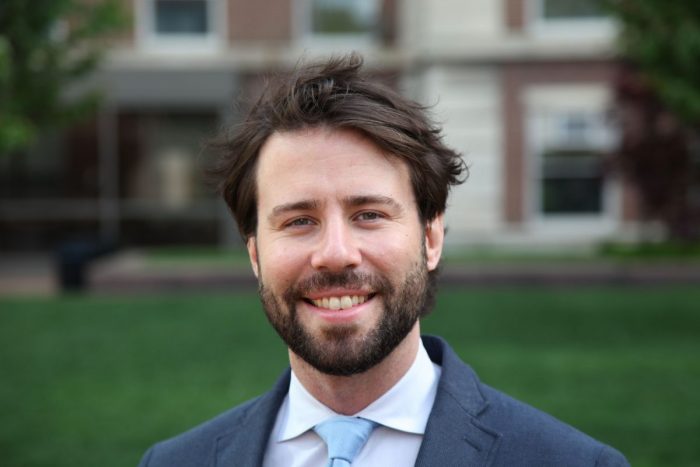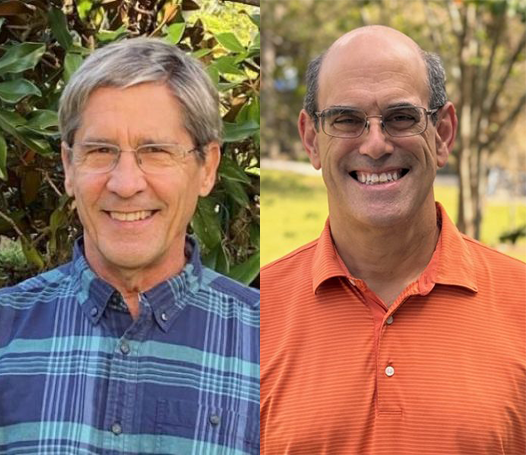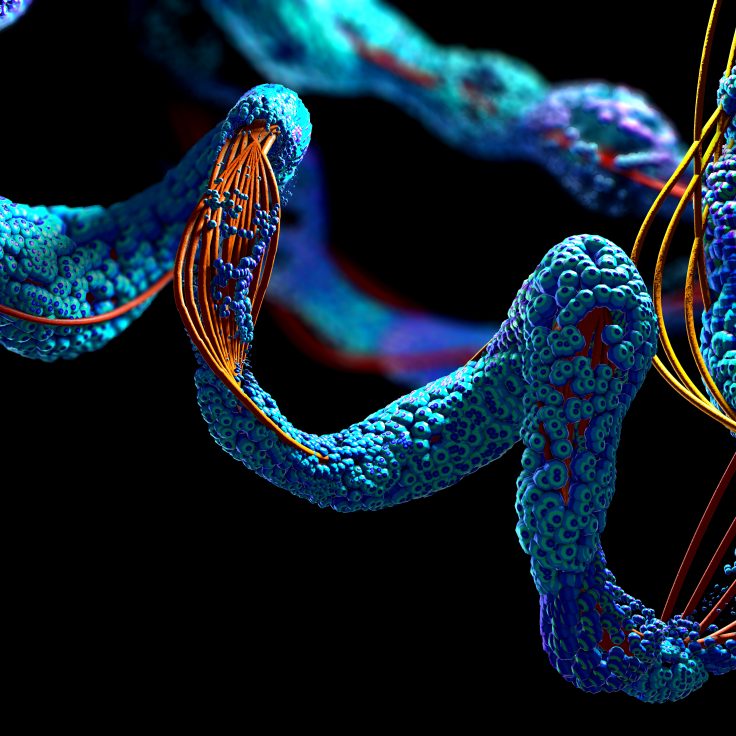
Imre Bartos, Assistant Professor of Physics
Physics Professor Bartos Named 2020 Alfred P. Sloan Research Fellow
Astrophysicist studies black hole collisions and neutron star mergers
When IMRE BARTOS first became interested in researching gravitational waves in 2004, his college professors advised against it. Since Albert Einstein theorized about their existence in 1915, no one had actually observed gravitational waves, ripples in space time caused by major cosmic events such as black hole collisions. The field was considered a dead end.
That continued to be true for another decade — until September 14, 2015, when, using an algorithm designed at UF, an international team of researchers detected gravitational waves emanating from the collision of two black holes over a billion light years from Earth. Arriving a century after Einstein’s prediction, the discovery shocked Bartos, then at Columbia University.
“It took me several days to fathom this was real,” Bartos said. Thankfully, he had ignored his skeptical professors’ advice and focused his research on an area of study that was about to blossom. That research eventually brought him to UF, where he became an assistant professor in 2017.
Gambling on this exciting field has continued to pay off for Bartos: The Alfred P. Sloan Foundation announced Wednesday that Bartos is the recipient of the 2020 Sloan Research Fellowship. The two-year Fellowship, which comes with an award of $150,000, recognizes researchers for “distinguished performance and a unique potential to make substantial contributions to their field.”
For Bartos, the Fellowship is an indication that the scientific community values not only his own research but the study of gravitational waves at large.
“It is very reassuring,” he said. “This award means the community has trust in me to use these resources to find exciting new cosmic events.”
The research fellowship, which is not tied to a specific project, affords him flexibility to pursue the latest discoveries in his field.
“Especially in a field that is very new with many interesting opportunities, it is critical to focus on the most pressing, riskier questions that may be arising very quickly,” Bartos said. “In a five-year period, there have been a number of complete pivots in the direction of the field.”
Five years after the very first detection of gravitational waves, researchers are now identifying one black hole collision a week. Bartos estimates that in two years, the rate will be one per day. In addition to black hole collisions, Bartos dedicates much of his research to the study of neutron star mergers, which produced the reserves of gold, platinum, uranium and many other heavy elements found on Earth.
“We’re starting to discover things that are changing how we think about the universe,” he said.
There are few better places to pursue this research than UF, one of the key institutions in the LIGO (Laser Interferometer Gravitational-Wave Observatory) collaboration that has been behind the field’s major discoveries. At UF, Bartos said he has access to expert collaborators, advanced instrumentation, a supportive research environment and elite students.
While his areas of interest might seem remote to us on Earth, Bartos believes that cosmic events offer insight into fundamental laws of nature in ways that can’t be observed terrestrially. For example, while physicists have made new discoveries using particle accelerators, black holes can accelerate particles up to more than a billion times faster.
“Very often in science and in physics in particular we can learn more about what is really behind different phenomena by looking at extremes,” he said. “For that, we very often need to go beyond Earth and even beyond the Solar System.”


